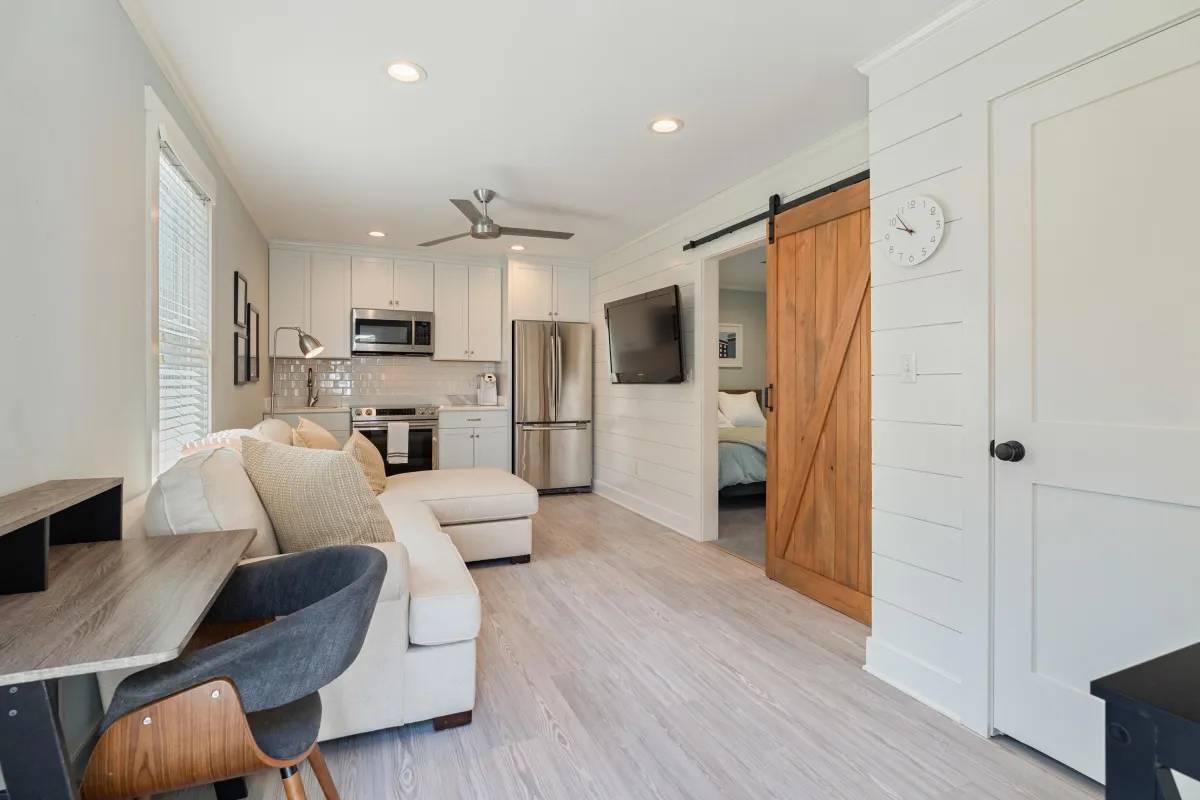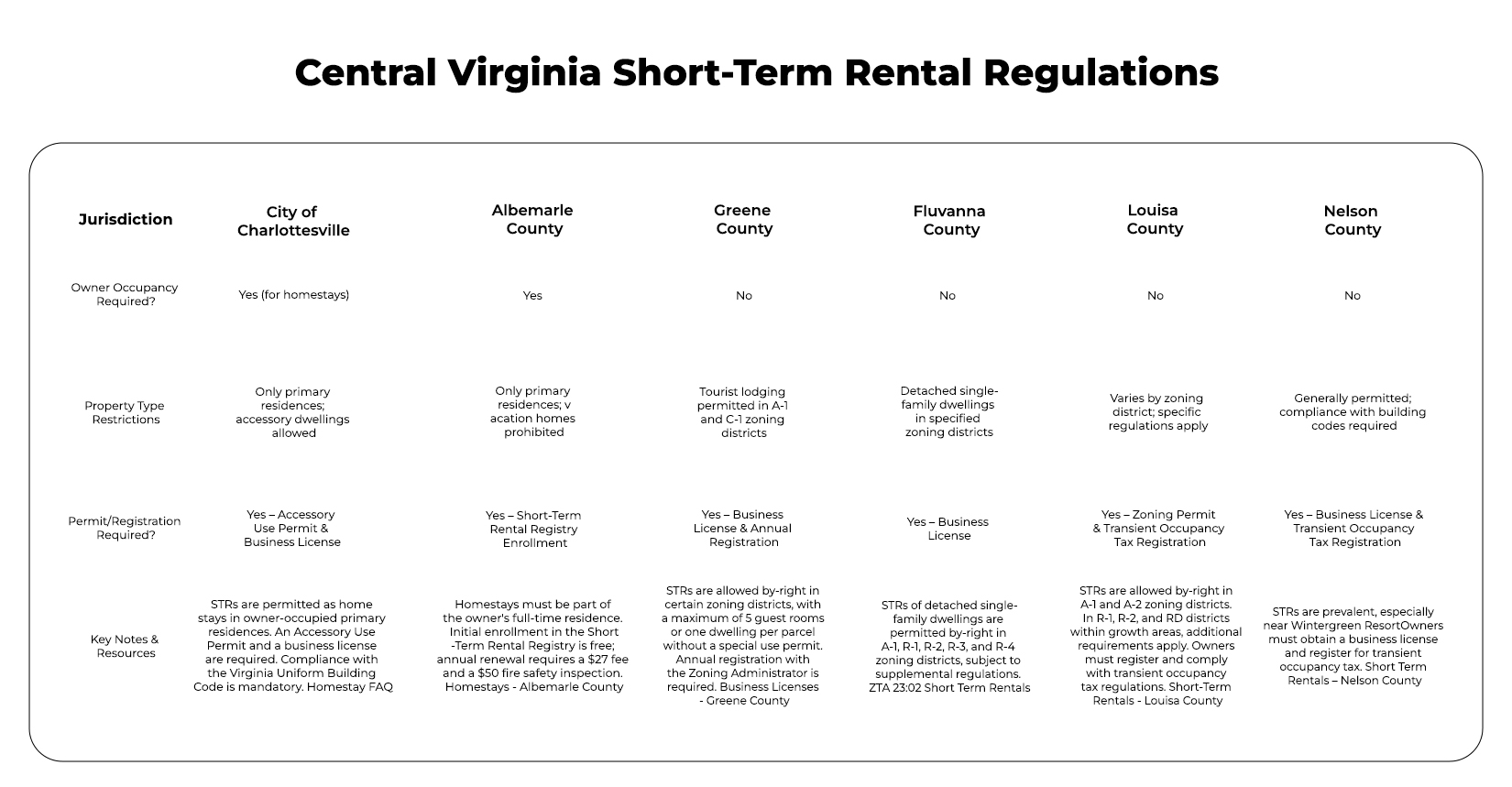Local Short-Term Rental Regulations
What Is a Short-Term Rental? - A short-term rental (STR) refers to the rental of a room, dwelling, or space for temporary lodging—typically fewer than 30 consecutive days—in exchange for payment. These arrangements are commonly listed on platforms such as Airbnb, VRBO, and similar services, and are also sometimes referred to as homestays or transient accommodations.
What Is a Short-Term Rental Registry? - Under Virginia Code § 15.2-983, local governments are permitted to create an official Short-Term Rental Registry. Property owners who rent out spaces on a short-term basis may be required to enroll annually. However, certain professionals, including licensed real estate agents, may be exempt from registration depending on local ordinances.
What Is the "Three Strikes" Rule? - Local jurisdictions in Virginia are authorized by § 15.2-983 to implement a “three strikes” policy. This allows a locality to prohibit a registered STR operator from renting a particular property if the owner commits three or more separate violations of state or local laws or regulations related to short-term rentals.
Do Homeowners Associations (HOAs) Affect Short-Term Rentals? - Yes. While local governments may allow STRs, HOAs or POAs (Property Owners Associations) can override that permission within their communities. Virginia law affirms that recorded covenants, community rules, and private agreements take precedence. For example, Lake Monticello and Belvedere are neighborhoods where STRs are not allowed, even though the county may permit them.
How Are STR Rules Enforced? - Short-term rental rules are generally enforced based on complaints. When a violation is reported, the local Zoning Administrator or their designee investigates to determine if enforcement action is necessary under applicable zoning laws and ordinances.Would you like this content formatted for your website, added to a downloadable brochure, or paired with a visual guide for homeowners and investors?

3178 Horizon Rd 60

1014 Old Trail Dr 32

05-3183 Court Mont Way 005

Important Disclaimer:
This table is for informational purposes only and does not constitute legal advice. Regulations are subject to change, and enforcement practices vary. Property owners should confirm current requirements with their local zoning office or speak with a knowledgeable advisor before listing a property as a short-term rental.
JANE HAMMEL
The Key Difference In Real Estate & Business
@JANE HAMMEL
